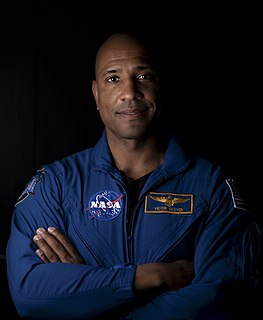A Quote by Heidi Hammel
No one planet can tell us everything about the universe, but Neptune seems to hold more than its share of information about the formation of our own solar system - as well as the solar systems beyond.
Related Quotes
While the Copernican principle comes with no guarantees that it will forever guide us to cosmic truths, it's worked quite well so far: not only is Earth not in the center of the solar system, but the solar system is not in the center of the Milky Way galaxy, the Milky Way galaxy is not in the center of the universe, and it may come to pass that our universe is just one of many that comprise a multiverse. And in case you're one of those people who thinks that the edge may be a special place, we are not at the edge of anything either.
Our customer base isn't just people saying, 'I'm an environmentalist, I'm in my Birkenstocks, I went to Woodstock.' Solar is a bipartisan technology. Republicans like solar; conservatives like solar. Over 30% of our customers are veterans. There's something very American about being able to produce power on your own rooftop.
Light is the only connection we have with the Universe beyond our solar system, and the only connection our ancestors had with anything beyond Earth. Follow the light and we can journey from the confines of our planet to other worlds that orbit the Sun without ever dreaming of spacecraft. To look up is to look back in time, because the ancient beams of light are messengers from the Universe's distant past.
The future is about wings and wheels and new forms of space transportation, along with our deep-space ambition to set foot on another world in our solar system: Mars. I firmly believe we will establish permanence on that planet. And in reaching for that goal, we can cultivate commercial development of the moon, the asteroid belt, the Red Planet itself and beyond.
This is a living planet. Look around. Mars, Venus, Jupiter. Look beyond our solar system. Where else is there a place that works, that is just right for the likes of us? It has not happened just instantly. It is vulnerable to our actions. But it's the result of four and a half billion years of evolution, of change over time. And it changes every day, all the time. It would be in our interest to try to maintain a certain level of stability that has enabled us to prosper, to not wreck the very systems that give us life.
The suppression of uncomfortable ideas may be common in religion or in politics, but it is not the path to knowledge, and there's no place for it in the endeavor of science. We do not know beforehand where fundamental insights will arise from about our mysterious and lovely solar system. The history of our study of our solar system shows us clearly that accepted and conventional ideas are often wrong, and that fundamental insights can arise from the most unexpected sources.
































